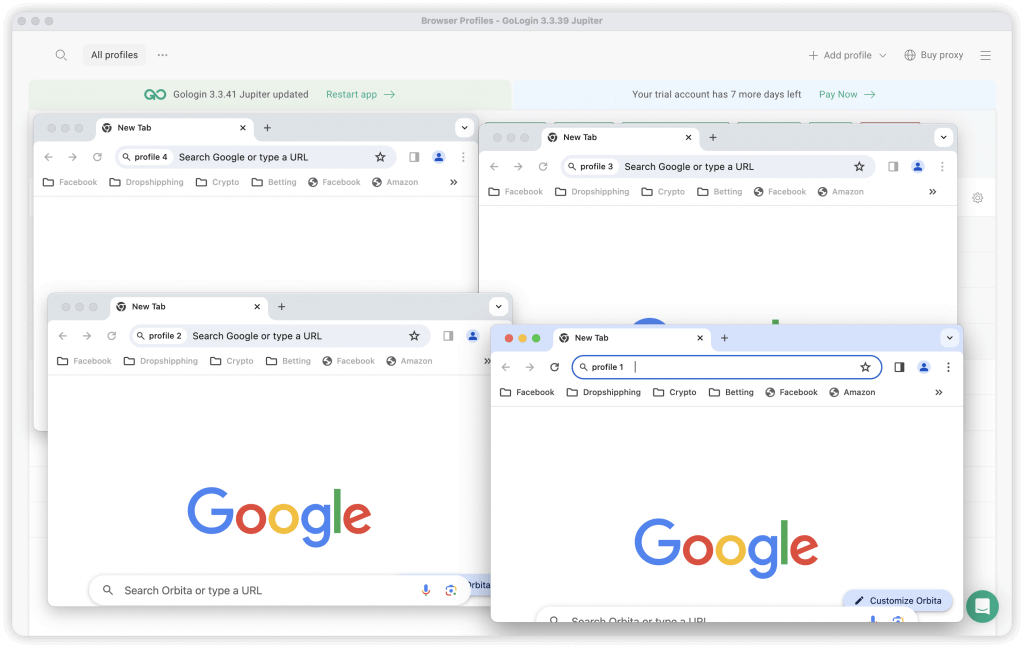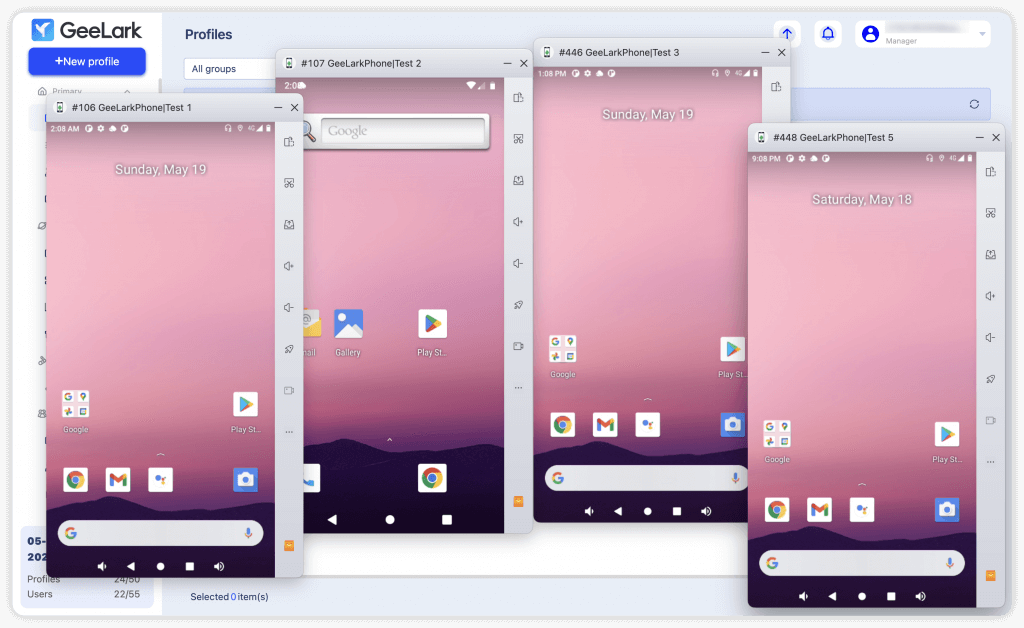Antidetect Browser vs. Antidetect Phone: Which is Right for Managing Multiple Accounts?
For those managing multiple accounts, antidetect browsers are a popular and efficient tool. There are numerous options available, such as Dolphin Anty, GoLogin, AdsPower, and Octo Browser, to name a few. But antidetect phone? That’s quite something new. Generally speaking, an antidetect phone serves the same purpose as an antidetect browser by facilitating multi-account management. The key difference is that, unlike antidetect browsers which mimic browser environments, antidetect phones emulate mobile phones.
Now you might be wondering: Why would I even use the antidetect phone if the antidetect browser is good enough for web multi-accounting? Don’t hush. Let’s break them down and see how they differ.
What is an antidetect browser?
As you have probably understood, the primary advantage of this tool is its ability to mask or alter the browser’s fingerprint, which encompasses user-agent, screen resolution, language settings, and other identifying details. An antidetect browser allows you to create multiple browser profiles for managing your accounts, each one operating like a regular Chrome or Firefox browser.

Given its features, the antidetect browser is particularly suited for multi-accounting activities that must be performed within a browser, such as:
- Social media account management: Many social media marketers manage their accounts online. Using an antidetect browser helps them avoid being flagged or banned by social media platforms for violating terms of service.
- E-commerce operations: E-commerce businesses may require multiple seller accounts on platforms like Amazon or eBay. Using an antidetect browser helps them manage these accounts without the risk of being detected and suspended.
- Online gaming: Gamers and game developers sometimes need to test multiple accounts or run bots. An antidetect browser ensures that their activities remain undetected by game servers.
- Affiliate marketing: Affiliate marketers can use multiple ads and social media accounts to maximize their earnings. An antidetect browser helps them avoid detection and ensures smooth operations.
What is an antidetect phone?
The key distinction between an antidetect browser and an antidetect phone (or mobile antidetect) lies in the environments they emulate. An antidetect browser can mimic both web and mobile browsers, while an antidetect phone is designed specifically to emulate mobile phones.
With an antidetect phone, you can create multiple profiles and configure various proxies for each. These profiles function like actual mobile phones, enabling you to run mobile apps seamlessly. If managing multiple accounts on the phone is crucial for you, consider abandoning the old method of purchasing numerous phones to avoid account bans. Instead, embrace the efficiency of the antidetect phone.

Here are some typical scenarios where the antidetect phone stands out:
- Social media management: In a world where mobile screens reign supreme, social media platforms have introduced mobile-exclusive features like Instagram’s Reels and Stories to enhance user experience. Platforms such as TikTok prioritize mobile usage, simplifying video uploads and view counts. For social media managers, employing an antidetect phone offers a strategic edge, enabling access to mobile-specific features without the need for multiple devices.
- Crypto giveaway: These days, many crypto giveaways enhance community engagement by requiring actions on mobile apps. Using an antidetect phone with dedicated profiles can separate personal and promotional activities, improving privacy and security. For participants, it provides a way to manage events and monitor campaign performance without relying on their personal phones.
- P2E mobile games: – P2E mobile games provide real rewards but need accessible technology. Using an antidetect phone can eliminate device restrictions, allowing smooth gameplay in MMORPGs and metaverse projects. This is ideal for gamers and influencers who want to play globally without needing multiple devices.
- Development tests: App developers must ensure their applications function smoothly across various devices, but testing on every single one isn’t always feasible. An antidetect browser allows them to observe app performance on different devices and conditions, providing rapid feedback on user experience and performance, and pinpointing issues prior to launch.
- Mobile iGaming: Whether you engage in an iGaming event through a mobile website or within an app, using an antidetect telephone can spare you the expense and inconvenience of purchasing and managing a multitude of mobile phones.
Which is better?
Antidetect browsers and antidetect phones provide robust solutions for managing multiple accounts without detection. The choice between them hinges on your specific use case and most frequently used platforms. By understanding their strengths and typical use scenarios, you can make an informed decision that best fits your needs:
- Choose an antidetect browser if you primarily manage multiple accounts on websites, e-commerce platforms, and web-based social media. This option offers advanced customization and control over browser fingerprints.
- Choose an antidetect phone if you focus on managing multiple accounts for mobile apps, including social media and gaming. This solution is ideal for handling multiple identities on-the-go.
FAQ
#1 An antidetect browser can simulate the Android and iOS browser environments. Does it work the same as an antidetect phone?
Absolutely not. When an antidetect browser emulates an Android or iOS browser, it simply allows you to perform tasks within the mobile browser, similar to using Safari, Chrome, or any other browser on your phone. In contrast, an antidetect phone goes beyond this by emulating the entire phone environment. This allows you to run apps, record videos, take screenshots, and use the mobile browser, making it indistinguishable from a real phone.
#2 Can I use an emulator instead of an antidetect phone?
While both tools effectively emulate a mobile phone, one cannot fully replace the other—it ultimately depends on your specific needs. If you don’t require precise device location or team collaboration, an emulator should suit you well. However, if you need to separate devices to ensure they aren’t associated, an antidetect phone is the better choice. With an antidetect phone, you can configure proxies with different locations for each phone profile, which comes pre-set with unique device information. This makes each profile appear as an unrelated device from various parts of the world. Additionally, antidetect phones offer automation and team collaboration features that facilitate scaling.
For more insights on managing multiple accounts and leveraging antidetect solutions, stay tuned to our blog and follow us on social media.











